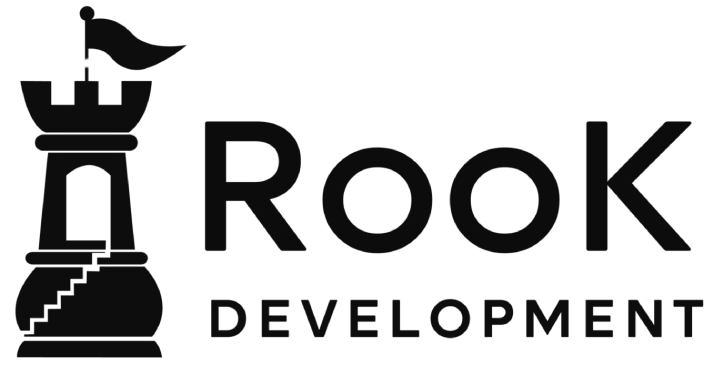Managing rental properties effectively is crucial for maximizing your investment returns and maintaining long-term success in real estate. Whether you’re a seasoned investor or just starting out, efficient property management is key to ensuring your rental business runs smoothly. In this article, we’ll discuss the best practices for managing rental properties, from tenant selection to property maintenance, ensuring you can protect your investment and maximize profitability.
1. Screen Tenants Carefully
One of the most important aspects of managing rental properties is selecting the right tenants. The tenants you choose will have a direct impact on your rental income and the overall condition of your property. Here’s how to screen tenants effectively:
- Background Check: Always run background checks to assess tenants’ criminal history, previous evictions, and financial stability.
- Credit Report: Review their credit report to gauge their ability to pay rent on time. A good credit score generally indicates responsible financial behavior.
- References: Check references from previous landlords to understand the tenant’s rental history and reliability.
- Income Verification: Ensure tenants have a stable income by requesting pay stubs or bank statements to verify they can afford the rent.
By thoroughly screening potential tenants, you minimize the risk of late payments, property damage, or other issues that could affect your rental business.
2. Set Competitive Rental Prices
Setting the right rental price is crucial for attracting quality tenants while ensuring that you’re earning a fair return on your investment. Overpricing or underpricing your rental property can lead to vacancy issues or a lack of profitability. Here’s how to determine the best rental price:
- Market Research: Analyze the rental market in your area by comparing similar properties. Use online real estate platforms, local listings, and consult with real estate agents to get a sense of the going rate.
- Consider Property Features: Take into account the condition of your property, amenities, and location when setting the rent. Properties in prime locations or those with added features like a pool or modern appliances can command higher rent.
- Review Regularly: Keep track of market changes and adjust your rent accordingly. If your area’s demand increases, you may be able to raise your rent to stay competitive.
Setting a fair and competitive rent will not only attract quality tenants but will also ensure your property remains financially viable.
3. Respond Promptly to Maintenance Requests
One of the keys to successful property management is keeping your tenants happy and your property in good condition. Promptly addressing maintenance issues will help prevent small problems from turning into costly repairs. Here’s how to manage maintenance effectively:
- Establish a Reporting System: Create a clear and efficient process for tenants to report maintenance issues, whether through email, phone, or a property management app.
- Respond Quickly: Address maintenance requests as soon as possible, especially for urgent issues like plumbing leaks or HVAC malfunctions. Fast response times build trust with tenants and reduce the risk of further damage.
- Regular Inspections: Schedule regular property inspections to identify and address any potential issues before they escalate. Preventative maintenance can save you money in the long run.
- Use Reliable Contractors: Develop a list of trusted contractors and maintenance personnel you can rely on for repairs and routine upkeep. Consistent, quality service will keep your property in top condition and your tenants satisfied.
Timely and efficient property maintenance not only preserves the value of your property but also enhances tenant retention.
4. Maintain Clear Communication with Tenants
Clear and open communication with tenants is essential for effective property management. Misunderstandings can lead to issues like late payments, complaints, or disputes. Here’s how to communicate effectively:
- Lease Agreement: Ensure your lease agreement is clear and outlines all terms, including rent payment dates, late fees, maintenance responsibilities, and other important rules. A well-defined lease minimizes confusion and sets expectations.
- Be Available: Make sure tenants can reach you when necessary, whether by phone, email, or messaging apps. Being accessible and responsive helps resolve issues quickly.
- Regular Updates: Keep tenants informed about property-related matters, such as planned maintenance, community events, or any changes in rental terms.
- Friendly and Professional Tone: Always communicate in a professional and courteous manner. Establishing a positive relationship with tenants encourages timely payments and good property care.
Good communication fosters a positive landlord-tenant relationship, reducing the likelihood of conflicts and ensuring smooth operations.
5. Stay on Top of Legal Requirements
Real estate laws and regulations can vary by location, and it’s crucial to stay informed about the legal responsibilities you have as a landlord. Failing to comply with laws can result in costly fines or even lawsuits. Here’s what you need to do:
- Fair Housing Laws: Familiarize yourself with federal and local fair housing laws to ensure you don’t discriminate against potential tenants based on race, religion, gender, or disability.
- Lease Regulations: Make sure your lease agreements comply with local laws regarding rent control, eviction procedures, and tenant rights.
- Health and Safety Codes: Ensure your property meets health and safety codes, including proper sanitation, fire safety, and security standards.
- Eviction Process: Understand the legal eviction process in your area. If you need to evict a tenant, follow the correct procedure to avoid legal complications.
Being proactive about legal matters protects you from potential lawsuits and ensures a smooth management process.
6. Utilize Property Management Software
In today’s digital age, property management software can make managing rental properties more efficient and less time-consuming. Here’s how property management software can help:
- Rent Collection: Many software platforms allow tenants to pay rent online, making the payment process faster and more convenient.
- Maintenance Tracking: Track and manage maintenance requests, assign tasks, and ensure timely completion through the software.
- Financial Reporting: Generate detailed reports for income and expenses, helping you keep track of profitability and tax obligations.
- Tenant Communication: Use the platform to send notices, reminders, and updates to tenants, ensuring clear communication.
Investing in property management software streamlines operations, reduces administrative work, and helps ensure your rental business runs efficiently.
Conclusion
Effectively managing rental properties requires attention to detail, strong communication, and a proactive approach to maintenance and tenant management. By implementing these strategies—screening tenants carefully, setting competitive rental prices, responding to maintenance needs quickly, maintaining clear communication, staying on top of legal requirements, and utilizing property management tools—you can ensure that your investment thrives and continues to generate steady income. Whether you’re new to property management or looking to improve your existing practices, these tips will help you manage your rental properties more effectively and maximize your returns.




